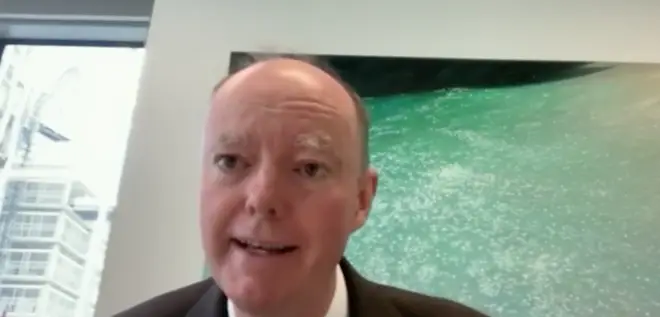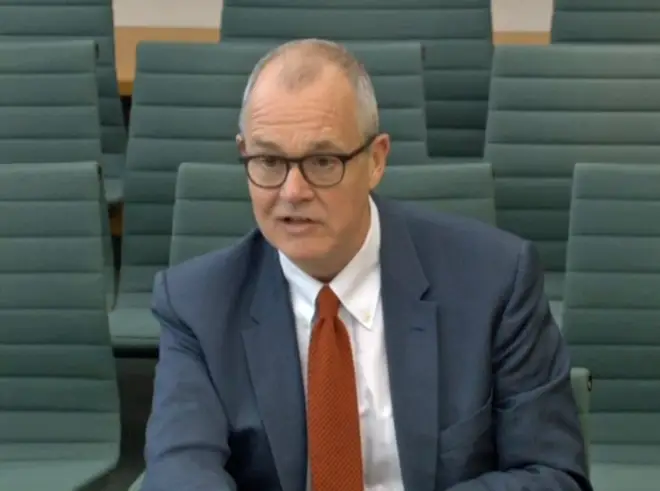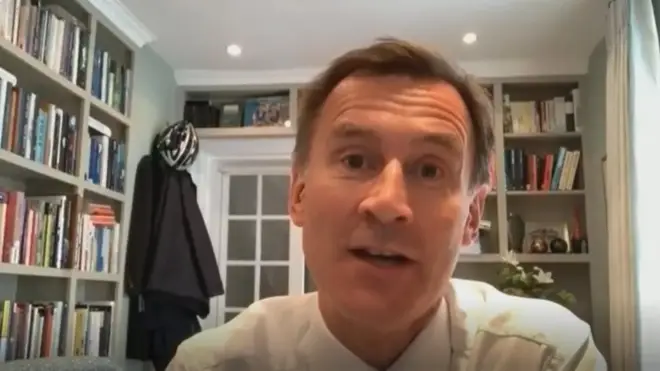
Paul Brand 7am - 10am
21 July 2020, 16:32

Professor Chris Whitty: We may have to change Covid-19 strategy in winter
A surge of Covid-19 this winter is a "really serious concern", England's Chief Medical Officer has told the Commons Health and Social Care Select Committee.
Professor Chris Whitt's prediction is a stark contrast to Boris Johnson’s plans to try and get the country back to normal by Christmas.
The Prime Minister said he is aiming for life in the UK to return to something close to normal by December, saying the country must “plan for the worst but hope for the best”.
He recently announced £3 billion of extra NHS funding and unveiled new “lightning lockdown” powers to enable councils to pounce on local outbreaks.
However, both Professor Whitty and Sir Patrick Vallance, the UK Government Chief Scientific Adviser, have now said the coronavirus challenges in the UK will be “very much greater” in the winter.
Prof Whitty told the committee: "When there is a surge, if there is a surge in winter, which is a really serious concern and looking forward, which is where I spend most of my thinking time, looking forward that's what I'm really worried about.
His comments reflect those made by Sir Patrick last week, who said this would likely be considered "the tail end of the first wave" rather than a fresh outbreak.
“I think it is quite probable that we will see this virus coming back in different waves over a number of years,” he added.

Prof Whitty made the statement when questioned by Commons Health and Social Care Select Committee chairman Jeremy Hunt asked about testing of asymptomatic healthcare staff.
"This is a huge logistical and operational and indeed economic thing to do, we should get it right when we do it," Prof Whitty said.
"We certainly will need asymptomatic testing among healthcare staff, the question is, who and what's the frequency and under what circumstances?"
He added: "I'm not against it, and I want to reassure you chair, because you've made a strong point on this, I do not actually disagree with you that asymptomatic testing is going to be needed, it's just under what circumstances with what frequency?"

Asked by chairman Jeremy Hunt if he was "content" the Government followed his advice on staging different elements of the lockdown, Prof Whitty said: "Ministers at the time, who were put in an incredibly difficult position, in my view, followed the advice given by Sage, which are clearly signposted through the minutes of Sage, with a delay that was no more than you would reasonably expect for what are really very difficult things to operationalise and decide.
"And I think I'd make a slightly further comment, which is obviously to be able to do this, there was a bit of signposting sometimes we may have to go further. And ministers were aware of that and they said that at the time.
"So, for example on the 16th (of March), my memory is that the Prime Minister did not announce schools closing, but I think he did say at that time, 'and we might need to consider schools closing'."
Prof Whitty added: "But I do not think, I'm not saying now and I'm not going to say at any point, to be clear, that in my view there was huge delay between the advice that ministers received given the enormity of the difficulties that we were asking of people and the practical implications of what was being done."

Prof Whitty also defended the government’s programme of Covid-19 testing and tracing telling MPs it was “incorrect” to assume the mechanisms could “suddenly” be switched on.
He told the Committee that there was an "incredibly limited testing capacity" at the start of the pandemic.
"Remember that this virus has symptoms which can range from almost no symptoms or no symptoms, through to a variety of things as previous witnesses have said, and I think this is well known," he told MPs.
"And at that stage we had incredibly limited testing capacity and we were at the tail-end of the winter respiratory illness system.
"We therefore had no capacity to find all the cases and do the kind of isolation that you would need to do."
He added: "It was clearly at a certain point impractical for us to continue to do this as a strategy, it was going to pick up such a small proportion, and the testing we had had to be deployed to the higher risk areas."
During a heated exchange with Jeremy Hunt, Prof Whitty said that "many problems" emerged from a lack of Covid-19 testing capacity.
On why a test, trace and isolate system similar to South Korea was not modelled earlier this year, Prof Whitty told MPs: "I'm absolutely confident, chair, and let me be very clear about this, that we had no capacity to do it on the scale that would have been needed, or for the kind of epidemic we had.
"Sage was consistent, and I was consistent, in saying we needed considerably more testing capacity.
"Many of the problems we had came out of our lack of testing capacity, but testing alone is not sufficient to have a full test and contact, trace and isolate system.
"This requires an infrastructure we did not have, which was built up by places like Korea."